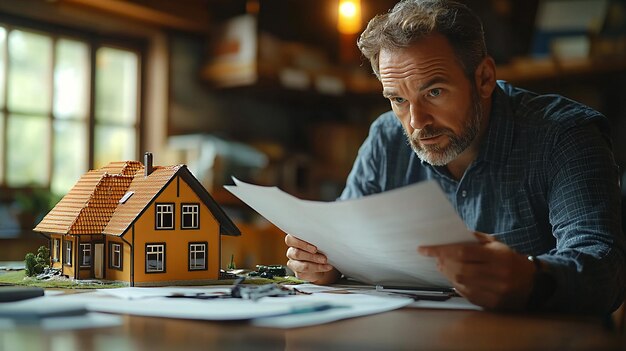Why Home Insurance is Essential: Protecting Your Most Valuable Asset
Home is where the heart is, and for most people, it’s also their most valuable asset. From the roof overhead to the foundation beneath, a home represents not just a place to live but also a significant investment. Yet, despite its importance, many homeowners overlook the need for home insurance. This critical financial safety net can help protect your home and belongings from various types of damage, ensuring that you’re financially prepared in case the unexpected happens. Here are some reasons why home insurance is an essential investment:
Protection Against Natural Disasters
Natural disasters like hurricanes, tornadoes, and earthquakes can cause extensive damage to homes and their contents. Home insurance can help cover the costs of repairing or even rebuilding your home in such cases. For instance, if a tree falls on your house during a storm, your insurance policy may help pay for the repairs or replacement of damaged structures.
Protection Against Man-Made Hazards
Accidents happening inside your home, such as fires caused by kitchen mishaps or burst pipes, can also result in significant damage. Home insurance policies typically cover the cost of repairs or replacement for such damages.
Protection Against Theft and Vandalism
Theft and vandalism can lead to financial losses not just for your home but also for your belongings. Home insurance policies often include coverage for stolen or damaged personal property.
Peace of Mind and Financial Security
Perhaps the most important reason for having home insurance is the peace of mind it provides. Knowing that your home and possessions are protected against potential damages can help alleviate stress and worry, allowing you to focus on enjoying your living space.
5. Legal Liability Protection
Home insurance can also provide liability coverage, protecting you financially in case someone is injured on your property or if you are found liable for damages caused to other people’s properties. This can help protect your assets and provide financial security in case of unexpected lawsuits.
Conclusion
In summary, home insurance is a crucial investment for protecting your most valuable asset – your home. It offers protection against various types of damages, both natural and man-made, as well as theft, vandalism, and legal liabilities. By investing in home insurance, you can enjoy the peace of mind that comes with knowing your financial security is ensured.

I. Introduction
Home insurance, also known as homeowners insurance or hazard insurance, is a type of property insurance that covers damages and losses to a private residence. The insurance policy protects the homeowner from financial losses due to various risks such as fire, theft, vandalism, storm damage, and liability claims.
Brief explanation of what home insurance is
Home insurance is a contract between an individual or entity and an insurance company that outlines the coverage, conditions, and exclusions for protecting a home from financial losses. The policy typically includes protection for the physical structure of the home, its contents, and additional living expenses if necessary.
Importance of home ownership and the significance of protecting it
Homeownership is a significant investment, both financially and emotionally. A home serves as a place of refuge, safety, and comfort for individuals and families. It represents the culmination of hard work, savings, and aspirations. Protecting this valuable asset from unforeseen risks and financial losses is crucial.
Thesis statement:
Home insurance is an
Home insurance is an essential investment to protect your most valuable asset – your home and its contents – from unforeseen risks and financial losses.
Conclusion
By investing in home insurance, homeowners can have peace of mind knowing that their financial investment and emotional attachment to their property are safeguarded. In the event of a covered loss, home insurance provides the necessary financial resources to repair or replace damaged items and rebuild structures.

Understanding the Basics of Home Insurance:
Home insurance is an essential investment for any property owner, be it a homeowner, condominium resident, or mobile home dweller. In this section, we will delve into the fundamentals of home insurance, focusing on various types of policies and their respective coverages.
Types of Home Insurance Policies
Dwelling Insurance
Dwelling insurance, also known as homeowners insurance, is designed for those who own their homes outright or have a mortgage. This coverage protects the physical structure of your dwelling against various perils such as fire, windstorms, hail, and theft. It also includes liability protection in case someone is injured on your property.
Condo Insurance
Condo insurance is a necessity for those who reside in a condominium or a cooperative housing complex. While the building’s master policy covers common areas and the structure, your personal property within your unit is not covered. Condo insurance policies typically include coverage for your belongings, interior walls, floors, and cabinets.
Renters Insurance
Renters insurance is specifically tailored for renters or tenants. Although landlords often have insurance to cover the building itself, your personal belongings are not included in their policy. Renters insurance offers coverage for theft, vandalism, and liability claims.
Mobile Home Insurance
Mobile home insurance is designed to cater to the unique needs of mobile and manufactured homeowners. This type of coverage ensures protection for the dwelling itself, personal belongings, as well as detached structures like garages or sheds.
Importance of Understanding Your Policy and Its Limits
Explanation of Deductibles, Premiums, and Claims
To fully appreciate your home insurance policy, it’s crucial to grasp the essential components, such as deductibles, premiums, and claims. A deductible is the amount you pay out of pocket before your insurance coverage kicks in. Premiums represent the monthly or annual payments to keep your policy active, while a claim is the request for reimbursement of covered damages or losses.
Discussion on How to Read and Interpret a Home Insurance Policy
Reading and understanding your home insurance policy can be a daunting task. Start by identifying the coverage limits for various aspects of your property, such as dwelling, personal property, and liability protection. Be sure to familiarize yourself with any exclusions or limitations within the policy. Lastly, if you encounter any terms or jargon that are unclear, don’t hesitate to contact your insurance provider for clarification.

I Reasons Why Home Insurance is Essential
Home insurance is not just an optional expense, but a necessary investment for homeowners. Here are some essential reasons why having home insurance is crucial:
Financial Protection against Property Damage
Home insurance provides financial protection for property owners against unexpected losses due to various causes. Some common examples of potential property damage causes include:
- Natural Disasters: hurricanes, tornadoes, earthquakes, and floods can cause extensive damage to homes.
- Fires: kitchen mishaps or electrical faults can lead to devastating fires.
- Theft: burglaries and robberies pose a significant risk to homeowners, leading to loss or damage of property.
- Vandalism: intentional damage by individuals can result in costly repairs and replacements.
The consequences of not being insured can be financially devastating in case of a loss. Homeowners would have to bear the entire cost of repairs or replacement on their own, which could be substantial.
Liability Coverage for Personal Injuries and Property Damage to Others
Home insurance also includes liability coverage, which protects homeowners against legal claims and financial losses arising from personal injuries or property damage to others.
Explanation of Personal Liability Coverage
Personal liability coverage pays for damages and legal fees in case the homeowner is held responsible for causing harm to others or their property. This could include injuries occurring on the property or damage caused by pets, among other things.
Real-life examples of potential accidents and their costs
For instance, if a guest slips on an icy staircase and sustains injuries or if a tree in your yard falls on a neighbor’s house during a storm, the costs could be substantial. Liability coverage can help cover these expenses and protect homeowners from potential lawsuits.
Peace of Mind and Security
Apart from the financial benefits, having home insurance also offers peace of mind and a sense of security. Knowing that potential risks are covered can help reduce stress and anxiety.
The emotional and psychological benefits of having home insurance
Home insurance not only protects the physical assets but also offers protection for the emotional and psychological wellbeing of homeowners. Knowing that their property is insured can give them a sense of security, allowing them to focus on other things.
Discussion on the importance of feeling secure in one’s home
Feeling safe and secure is a fundamental human need, and having home insurance helps ensure that this need is met. It can provide peace of mind, allowing homeowners to enjoy their living spaces without constant worry about potential risks or financial losses.
Mortgage Requirement for Home Insurance
Lastly, if you have a mortgage on your property, most lenders require home insurance to protect their investment in the property.
Explanation of how lenders require insurance to protect their investment in a property
Lenders want to ensure that the property they have financed is adequately insured against potential damages or losses. By requiring insurance, lenders can protect their investment and minimize their risk if the borrower fails to pay the mortgage.
Discussion on the consequences of not having adequate home insurance coverage while carrying a mortgage
Failure to maintain adequate home insurance coverage while carrying a mortgage can lead to several consequences, including the lender forcing the sale of the property to recoup their losses. This can result in financial hardship for homeowners and may negatively impact their credit score.

Factors Affecting Home Insurance Rates and Premiums
Location, Age, and Condition of the Property
The location, age, and condition of your property are crucial factors in determining home insurance rates and premiums. Location plays a significant role as areas prone to natural disasters, crime, or densely populated urban areas typically have higher premiums. For instance, homes in coastal regions may be more expensive to insure due to the risk of hurricanes and storm surges. Similarly, homes located in areas with a high crime rate or close to fire departments may face higher premiums due to increased risk.
Deductibles and Policy Limits
Deductibles refer to the amount you pay out of pocket before your insurance coverage kicks in. By increasing your deductible, you can reduce your premiums, as the insurer assumes that you will bear a larger portion of the cost in case of a claim. However, this also means you’ll pay more upfront if damage occurs. Conversely, lower deductibles will result in higher premiums but less out-of-pocket cost when filing a claim.
Policy Limits
Policy limits define the maximum amount your insurance will cover for property damage or liability claims. The higher the limit, the more comprehensive your coverage but also the higher your premiums.
Claims History, Credit Score, and Discounts
Claims history is a significant factor in calculating insurance rates. Previous claims may indicate a higher risk for future damage, resulting in increased premiums. Homeowners with no or few claims can typically negotiate lower rates due to their history of responsible insurance management.
Credit Score
Your credit score can also influence home insurance premiums as insurers view it as a factor in assessing risk. Generally, higher credit scores correlate with lower risks and result in lower insurance rates.
Discounts
Finally, various discounts are available that can help reduce your home insurance premiums. Installing security systems, smoke detectors, or storm shutters may earn you a discount for making your property more secure and less susceptible to damage. Additionally, insurers often offer multi-policy discounts for homeowners who bundle their auto, life, or other insurance policies under the same provider.

Conclusion
As we reach the end of our discussion on home insurance, it’s important to reiterate its significance in safeguarding one’s most valuable investment – your home. Home insurance offers a myriad of benefits that go beyond just financial protection. For instance, it provides peace of mind, knowing that you are shielded from unforeseen damages or losses. It also ensures financial security, protecting you against potential liabilities, such as injuries on your property that could lead to costly lawsuits. Furthermore, home insurance can help maintain your lifestyle, by providing funds for temporary living expenses if you are displaced from your home due to a covered loss.
Recap of the Importance and Benefits of Home Insurance
In essence, home insurance acts as a safety net, offering coverage for various perils such as fire, theft, windstorms, and hail. It also protects your belongings from damage or loss and may even provide coverage for additional living expenses if you need to temporarily relocate due to a covered loss. This financial protection extends to any permanent structures on your property, such as garages or sheds, and can even provide liability coverage for accidents that occur on your property.
Encouragement to Review Your Current Home Insurance Coverage
Given the many benefits of home insurance, it’s crucial that you regularly review and update your current coverage. Your needs may change over time due to various factors such as renovations, additions to your property, or the acquisition of new valuables. Failing to adjust your policy accordingly could result in inadequate coverage or potential gaps in protection.
Evaluate Your Current Coverage Limits
When reviewing your policy, consider whether your current coverage limits are sufficient for the replacement cost of your home and possessions. Keep in mind that the value of your property may change due to factors such as inflation, location-specific conditions, or improvements you have made.
Assess Your Belongings
Additionally, take the time to inventory and document your belongings, ensuring that their values are accurately reflected in your policy. This includes not only major items but also smaller possessions that can add up quickly.
Review Liability Limits
Finally, examine your liability limits and consider increasing them if necessary to protect against potential lawsuits. This is particularly important for homeowners with substantial assets or high net worth.
Final Thoughts on the Peace of Mind and Financial Security That Comes with Having Proper Home Insurance
Proper home insurance not only offers financial protection but also provides the invaluable peace of mind that comes with knowing your investment and belongings are shielded from potential risks. By taking the time to review and update your home insurance coverage regularly, you can ensure that you have the right level of protection for your unique situation.
The Bottom Line
In summary, home insurance is an essential investment for any homeowner. It safeguards your property against unforeseen damages or losses and offers financial security in the face of potential liabilities. By regularly reviewing and updating your coverage, you can ensure that you have the proper protection for your unique situation and enjoy the peace of mind that comes with knowing your investment is secure.


